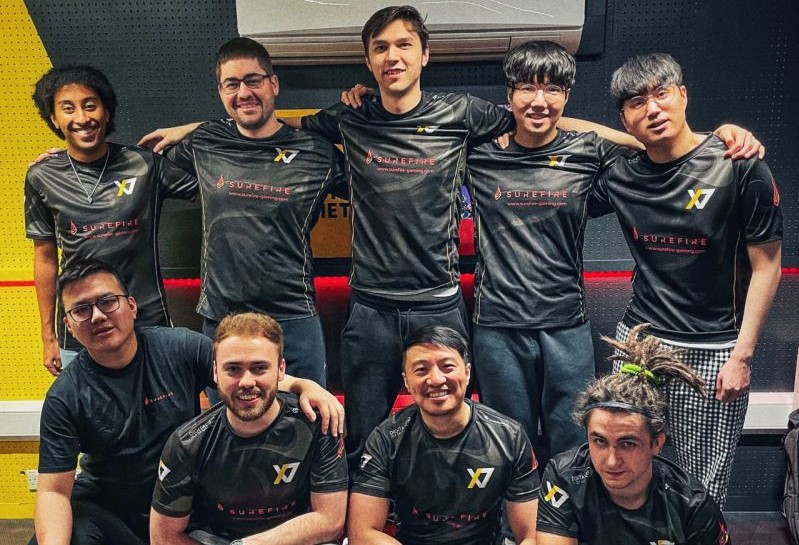For a long time, the esports space has fostered a consensus that esports athletes are, in fact, mental athletes. Besides exceptional gaming skills, it is their ability to perform under pressure, their reaction time and decision making that truly differentiates them from an average gamer.
But with skill comes burden; the mental load of professional competition often leaves its toll on athletes’ mental health. Anxiety, depression, burnout and social exclusion are well-known issues amongst esports players, yet industry measures to combat these torments are still lacking.
Needless to mention that the mental state of athletes has a direct impact on their profession, an impact that has already caused numerous players to pause or even terminate their careers.
Although supporting the well-being of players has become a norm for the major esports organisations, it largely depends on the org’s budget, and therefore not all players can rely on the same levels of support.

Josh Kingett, Esports Executive at Digital Isle of Man, an executive agency within the Isle of Man Government, told Esports Insider of the importance of mental health support for esports athletes at all levels.
As a former pro player and current owner of X7, Isle of Man’s first professional esports organisation, Kingett has experienced the matter from both perspectives.
“Esports is an industry where if you want to be one of the best, you have to give it your everything,” he said. “That means blocking out a lot of the other things that your peers would otherwise be concentrating on. It is a big sacrifice.”
Indeed, being glued to a screen for more than 12 hours a day is not a particularly healthy lifestyle. “That’s why there needs to be balance,” continued Kingett. “Players need to have a support system around them to plan out their day and make sure they’re getting the right nutrition and that they actually do some exercise.”
Naturally, it’s a lot easier to enforce or encourage players to physical training when the organisation has a gaming house, as opposed to operating remotely. In the case of the latter, orgs have to rely upon the individual’s willingness to take care and address the issues.

RELATED: Isle of Man: The new authentic esports destination
Whilst nutrition and exercise are the alpha and omega of health — physical and mental — the needs of esports athletes certainly don’t end there. However, according to Kingett, an army of elite psychologists isn’t necessary either.
“It can be as simple as just having people to counsel players and speak to them, making sure that they have people to come to. Sometimes they’re not comfortable speaking to friends or family, so we kind of act as their second family that can help them get through issues.”
Player approach matters
It’s next to impossible not to bring the bad energy into the match when players suffer from anxiety, depression or burnout. Be it in official matches, practice matches or training, it often has a negative effect on the overall performance of the whole team.
“You don’t want to underperform in a tournament just because you’re dealing with some stuff outside of the game that you don’t have any support for,” said Kingett. “It can make the entire team look bad, which might have a domino effect and impact your teammate’s careers.”
“As soon as esports organisations take a more serious approach and provide adequate care for their players, these sorts of situations won’t be happening so much.”
That said, without players themselves taking a proactive approach towards their well-being, there’s only so much their organisations can do for them.

Kingett emphasised the importance of finding one’s preference on how to perform best. Some might plan and structure their day, some start their day with a cold shower and some take regular walks outside.
“Overall, players should be more conscious about the balance between looking after their physical health and mental health, because not all of the consequences are apparent at first glance and you sometimes run into burnout before it’s too late.”
What the industry can do
When it comes to health in esports, the industry has definitely seen an improvement in recent years. Companies are starting to capitalise on this relatively untapped market,
with a number of gaming and esports brands such as Gscience and Madmonq claiming to have tailored their products to be health-focused.
Still more brands and orgs including Razer, Immortals and Cloud9 have committed to promoting health in esports, creating programmes that seek to make professional gaming a more sustainable career path.
[primis_video widget=”5183″]RELATED: X7 Esports unveils sponsorship from Isle of Man Government
However, there’s still plenty of space for improvement, especially at the top of the esports ecosystem. “It would be good to see tournament organisers or even game publishers provide support for the leagues they’re running so that the responsibility isn’t just upon organisations,” Kingett explained.
“Not all orgs have the resources and the source of support for their players. Having a system in place where leagues could supply this to teams and players that need it would be a great way forward in the future.”
One of the rare instances of such support from a tournament organiser includes Riot Games’ commercial partnership with performance technology company Hyperice. As a part of the deal, Hyperice provided all teams participating in Riot’s League of Legends Pro League (LPL) teams with access to its recovery technologies throughout 2021.
While this particular partnership was focused on the physical wellness of the league’s athletes, mental health-focused initiatives are largely absent. Tournament organisers better make haste, as the well-being of esports athletes is in the best interest of everybody involved.
[maxbutton id=”4″ ]
